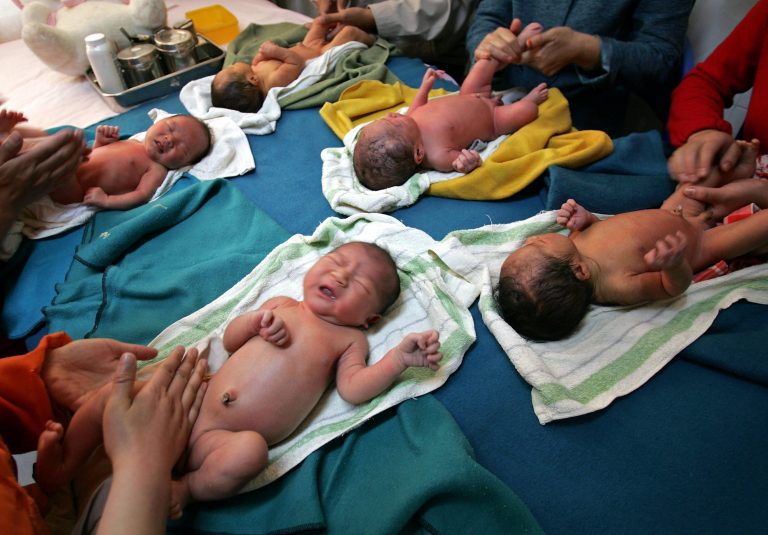After scrapping their decades-old one-child policy in 2016 and implementing a three-child policy in May of 2021, the Chinese Communist Party (CCP) has now enacted a broad series of incentives in an attempt to manufacture an economy-saving baby boom.
On July 20, the State Council of the CCP unveiled sweeping new policies designed to encourage childbirth. The policies include “inclusive kindergartens, ensures after-school childcare services; and gives child-rearing families personal income tax benefits, public rental housing, and housing support,” The Epoch Times reported.
The Chinese Ministry of Education has also stepped up recently to encourage schools to open and provide child care services during the summer months. In addition, first and second-tier cities have implemented policies that address housing prices in favorable school districts, suggesting that authorities are looking for ways to encourage people to have more children by reducing some of the burdens of raising a child.
The CCP has also abolished fines for “over-birth,” a term used to describe people who defied the previous one-child policy. Restrictions have been lifted on residency registration, school admissions, and jobs for over-born children.
Population crisis in China
The policies, in addition to the recently enacted three-child policy, are directly related to the recent Chinese census results released on May 11.
Success
You are now signed up for our newsletter
Success
Check your email to complete sign up
Red flags emerged during the 2010s when Chinese demographers noticed census results pointing to an aging population that was not producing enough offspring to support the economy. The most recent census results did little to satisfy these fears.
Currently, China’s working-age population — people between the ages of 15 and 59 — is in free fall. This age group has dropped from 70.1 percent of the population a decade ago to 63.3 percent today, according to AP.
The Chinese Labor Ministry, under previous policies, feared that the number of working-age people could fall to half the population by 2050. This would be disastrous for China’s economy.
While this coveted age group shrinks, the percentage of the population 65 years old and older is ballooning from 8.9 percent of the population a decade ago to 13.5 percent today, representing a direct threat to the ruling party’s economic and political ambitions.
China’s fertility rate is also in free-fall. The average number of births per mother remains at 1.3, well below the replacement rate of 2.0 and a growth rate of at least 2.1.
State-dictated family planning
The one-child policy was initially implemented as part of a broader program designed to control the size of China’s rapidly growing population. The policy was largely regarded as the world’s most extreme example of population planning.
Having garnered the support of influential Chinese leaders like Deng Xiaoping, Chen Yun, and Li Xiannian in 1979, strict enforcement began in 1980.
The policy was amended in the mid-1980s to allow rural parents, whose first child was female, to have a second child in an attempt to have a son.
The CCP used contraception, forced abortion, sterilization, and enormous fines on violators to ensure compliance with its policies. Commissions were created at the local and national levels to monitor compliance with the one-child policy.
The previous policies are suspected of averting upwards of 400 million births, a number that some projected to grow to one billion if the one-child policy was left in place until 2060.
“According to a report released by the Chinese authorities in January 2007, 400 million fewer people have been born in China since the introduction of ‘family planning,’ which the party calls a ‘remarkable achievement.’” The Epoch Times reported.
However, China is in a race against time, and industry experts generally believe that even if the limited child policies are lifted, a negative growth era may be unavoidable for China’s population.














